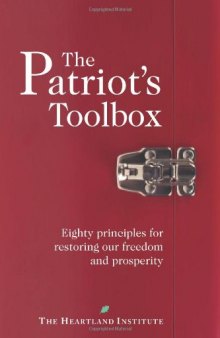 جزییات کتاب
جزییات کتاب
Rarely have more people in the United States been so deeply concerned about the direction of their country as right now, in 2010. During the past two years, millions of men and women have literally marched in the streets for political change, and surveys show their views are supported by the great majority of other Americans. They are not demanding new entitlement programs or threatening to strike if their demands are not met. They simply want their country back. As this book's title suggests, they are patriots who want to restore the country's freedom and prosperity. The most visible part of this uprising, called the Tea Party movement, arose in response to the enormous government bailouts of banks and insurance companies launched by President George W. Bush and overseen by President Barack Obama, and then the massive spending initiatives and government takeovers of formerly private businesses during the first 18 months of the Obama administration. The new patriots perceive that these developments contradict basic American ideals and historical practice. They are right.rose in response to the enormous government bailouts of banks and insurance companies launched by President George W. Bush and overseen by President Barack Obama, and then the massive spending initiatives and government takeovers of formerly private businesses during the first 18 months of the Obama administration. The new patriots perceive that these developments contradict basic American ideals and historical practice. They are right.This book is offered as a guide to public policy for patriot-activists in the Tea Party movement as well as for candidates for public office, incumbent office holders, civic and business leaders, and journalists assigned to cover the movement. It consists of eight chapters, seven of them previously published by The Heartland Institute as booklets in a series called Legislative Principles and one written specifically for this book. Together, they provide a comprehensive collection of practical, evidence-based principles in the major fields of legislation. Additional research and commentary can be found on The Heartland Institute's Web site.



 دانلود کتاب
دانلود کتاب

 جزییات کتاب
جزییات کتاب





 این کتاب رو مطالعه کردید؟ نظر شما چیست؟
این کتاب رو مطالعه کردید؟ نظر شما چیست؟
